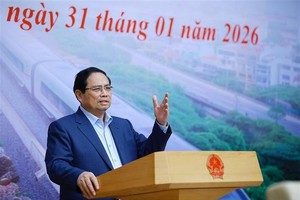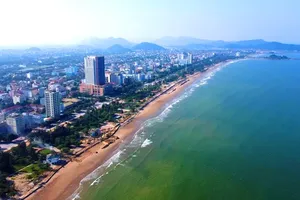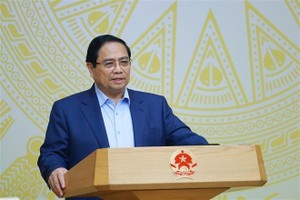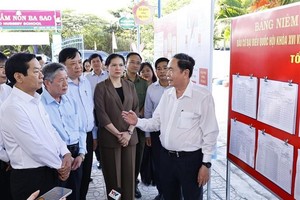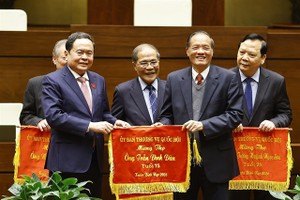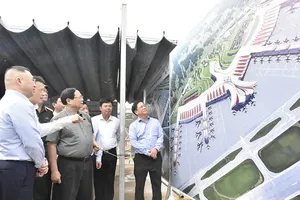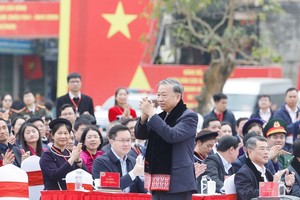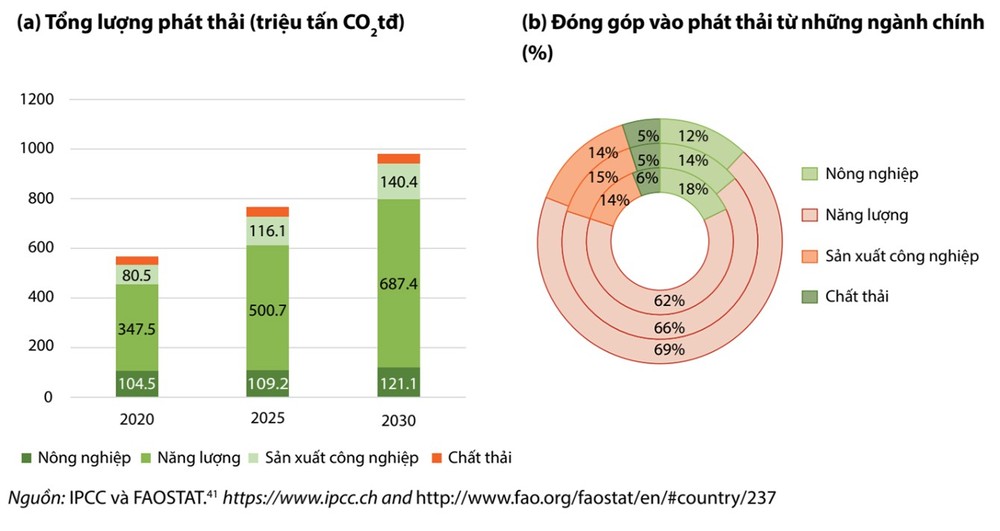 |
At present, in Vietnam, there are nearly 2,000 businesses in need of greenhouse gas inventory and emission quota observance. Around 300 Clean Development Mechanism (CDM) projects in the country have issued 30 million carbon credits.
Besides CDM ones, Vietnam is now running carbon credit projects following other independent international standards. 32 projects under the Gold Standards (GS) and 27 under the Verified Carbon Standard (VCS) have also issued 5.7 million and 1.3 million credits respectively.
Vietnam is classified to have a huge potential of carbon credits from its forests with the total surface area of 14.7 million hectares and a forest coverage of 42 percent. On average, each year, the volume of carbon dioxide to absorb reaches 69.8 million tonnes.
Theoretically, any projects that help to reduce greenhouse gas emissions can be converted into carbon credits. This means other fields like agriculture and energy harnessing can also produce these credits for the market.
Vietnam is launching a project of creating 1 million hectares of sustainable rice fields in the Mekong Delta, which can be packed into carbon credits. In addition, Loc Troi Group is implementing a project for low-carbon rice production following the sustainable standards of Sustainable Rice Platform (SRP). The company is the first and only in the world to obtain 100 SRP points in the three consecutive years of 2020-2022 on a farming area of 250ha each year.
In the energy field, the Wind Power Plant in Bac Lieu Province with its total capacity of 99.2 MW is contributing to reducing CO2 emissions by 143,761 tonnes a year. Nam Pia hydropower project in Son La Province, with a total capacity of 15 MW, and the thermal power project using bagasse at Lam Son Sugar JSC. can reduce CO2 emissions by 30,780 tonnes and 31,706 tonnes a year respectively.
Meanwhile, Vietstar project to treat urban waste in Cu Chi District of HCMC is operating various activities, ranging from categorizing Municipal Solid Waste (MSW), recycling plastic waste, to producing composting via aerobic heat from organic ingredients with LEMNA decomposition technology. It is estimated that 181,492 tonnes of CO2 are reduced each year. The project to convert boiler fuel from FO oil to rice husk charcoal by Saigon VeWong Co. in HCMC also decreases CO2 emissions by 24,866 tonnes per year.
At the end of May 2022, Citi Financial Group of the US announced that it completed the procedure to buy the first Verified Carbon Credits (VCC) from the project to produce and distribute improved stoves and water purifiers to low-income communities in rural Vietnam. This project helped 5 million eligible people while significantly reducing CO2 emissions compared to the traditional use of coal or wood stoves.

